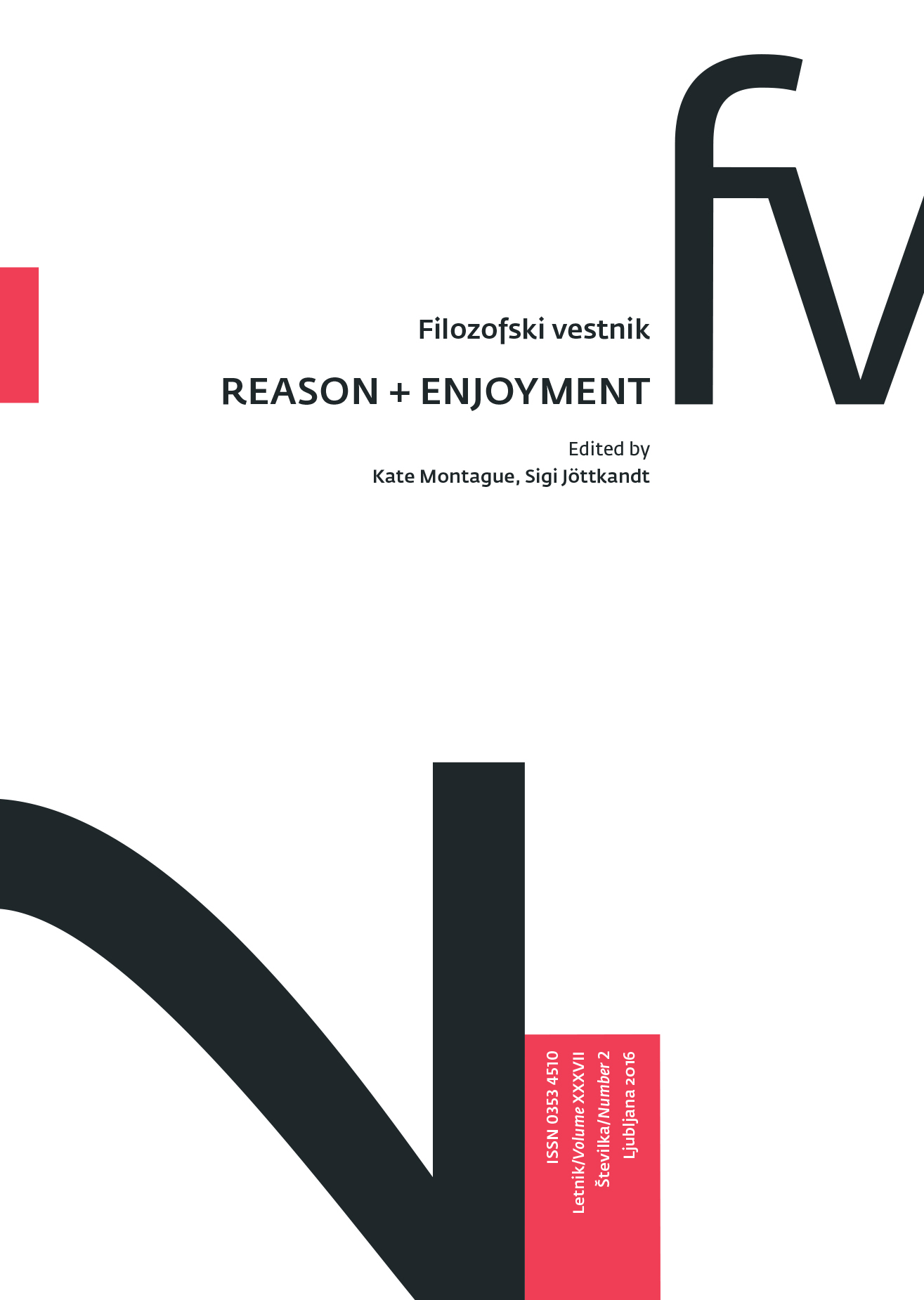Drugi kopernikanski obrat v Kantovi filozofiji
Ključne besede:
kopernikanski obrat, »transcendentalna razlika«, samokritika uma, stvar misli, reflektirajoča sodba, univerzalno, singularnostPovzetek
Prispevek preiskuje težavno vprašanje razmerja med umom in užitkom, kot ga lahko opredelimo iz perspektive Kantove filozofije, ki nastopa kot sinonim »čistega uma«. Temeljna teza pričujočega članka se osredinja na revolucijo v načinu mišljenja, ki je v filozofiji nastopilo s slovitim Kantovim »kopernikanskim obratom«. Slednji izhaja iz priznanja aficiranosti misli s stvarjo, ki sicer sodi k misli pripada, saj jo sili misliti, a si je ta vseeno ne more prisvojiti. Teza pričujočega članka je, da to zahteva »drugi« kopernikanski obrat. Z drugim kopernikanskim obratom, dovršenim šele v Kritiki razsodne moči, Kant povzame »transcendentalno razliko« med videzom in stvarjo-na-sebi, podano že v prvi Kritiki, vendar problem aficiranosti misli seže onkraj dognanj prve Kritike. Da bi se lahko lotili ontološkega statusa stvari na sebi, ki znotraj objektivne realnosti deluje kot iz nje izključeni element, ugotavlja avtor, morajo biti izpolnjeni dodatni pogoji poleg tistih, že podanih s kritiko spekulativnega uma. Zato da bi naredili vidne materialne sledi prisotne odsotnosti znotraj objektivne realnosti, moramo reflektirati prisotnost idej uma v empirični realnosti. Gre torej za refleksijo, ki je zmožna empirično danim kontingentnim partikularnostim pripisati status primerov idej uma. Ključno vprašanje pri tem pa se nanaša na specifičen način, kako ideje uma manifestirajo svojo prisotnost v svetu, in, posledično, na možnost zasnovanja nove vrste univerzalnega, do katerega lahko pridemo zgolj s pomočjo reflektirajoče razsodne moči. Z zatrjevanjem obstoja primerov idej, tj. obstoja univerzalnega znotraj dane objektivne realnosti, reflektirajoča razsodna moč misli določi orientacijo, s čimer omogoči ponovno vzpostavitev dane realnosti.Prenosi
Podatki o prenosih še niso na voljo.
Prenosi
Objavljeno
2017-01-18
Kako citirati
Riha, R. (2017). Drugi kopernikanski obrat v Kantovi filozofiji. Filozofski Vestnik, 37(2). Pridobljeno od https://ojs.zrc-sazu.si/filozofski-vestnik/article/view/4874
Številka
Rubrike
Um + užitek
Licenca
Avtorji jamčijo, da je delo njihova avtorska stvaritev, da v njem niso kršene avtorske pravice tretjih oseb ali kake druge pravice. V primeru zahtevkov tretjih oseb se avtorji zavezujejo, da bodo varovali interese založnika ter da bodo povrnili morebitno škodo.
Podrobneje v rubriki: Prispevki





